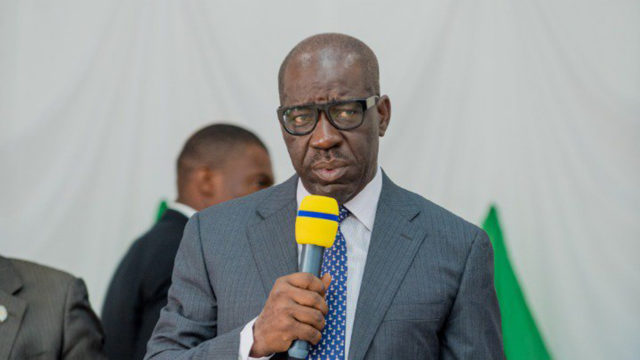As part of efforts to tackle insecurity in Edo State, the state government says its plans to make the installation of surveillance cameras compulsory for businesses and designated premises in the state.
This is as the state governor, Mr. Godwin Obaseki, said the state has recorded huge improvements in public safety and security over the past seven years
Obaseki, while addressing newsmen in Benin City, attributed the improvement in the security sector to an innovative and pragmatic approach adopted by his government to tackle crime and criminality in the state.
READ ALSO: Police Arrest Man For Assaulting Officer In Lagos
According to him, “We shall shortly be bringing a bill to the House of Assembly for a law to make it mandatory for businesses and designated premises to install surveillance cameras.”
Obaseki said, “We have made huge improvements in public safety and security, owing to an innovative and pragmatic approach to tackling crime and criminality in the State.
“We have trained not less than 5000 community police personnel under the Edo State Security Network (ESSN) in the last one year through investment in training facilities within the State. These personnel have been instrumental in our community-led intelligence-gathering mechanism.
READ ALSO: Edo Guber: PDP Leaders Canvass Ogbeide-Ihama As Division Erupts Over Zoning
“In collaboration with the Nigeria Communication Commission (NCC), we have set up emergency shortcodes – 112 and 739. These codes serve as a direct and efficient link for citizens to access emergency services promptly.”
He further noted, “Additionally, a groundbreaking partnership with the Ministry of Health has been solidified, ensuring the seamless integration of Emergency Medical Services (EMS) with the state and a fleet of ambulances.
“Concurrently, efforts are underway to fortify our surveillance infrastructure. The ongoing installation of street-wide cameras and lights represents a pivotal stride in bolstering our security apparatus and enhancing data collection capabilities.”
Obaseki added, “Simultaneously, a dedicated committee has been established to create a Safety Commission tasked with overseeing safety compliance. This includes regulations pertaining to building safety, event safety, and fuel station safety.”
